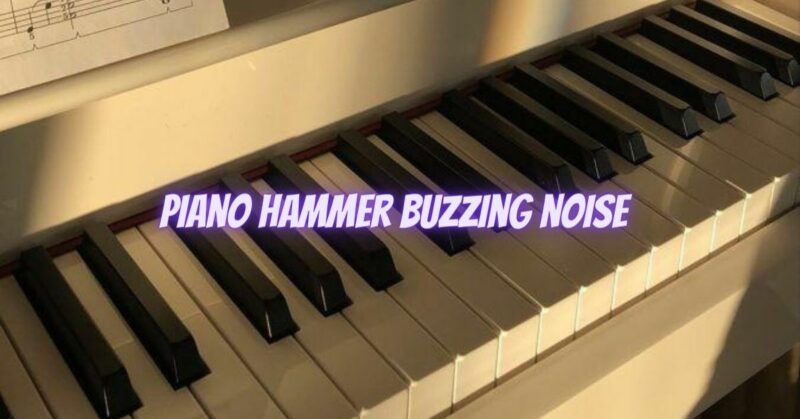A buzzing noise coming from the piano hammers can be frustrating for both pianists and listeners alike. It can disrupt the clarity and tone of the notes and diminish the overall musical experience. Fortunately, identifying and resolving the cause of the buzzing can often be done with some careful examination and basic adjustments. In this article, we’ll explore some common causes of piano hammer buzzing noise and how to address them.
1. Check for Loose or Misaligned Parts:
- The buzzing sound may result from loose or misaligned parts within the piano action, such as the hammer flange, knuckles, or repetition lever. Carefully inspect the affected area and look for any visible signs of misalignment or looseness.
- If you have experience in piano repair, you may attempt to adjust or tighten the loose parts. However, if you’re unsure or lack experience, it’s best to seek the assistance of a qualified piano technician.
2. Check for Hammer Felt Wear:
- Over time, the felt covering on the hammers can wear down or become compressed, leading to buzzing. Inspect the hammers for any signs of wear or unevenness in the felt.
- If the felt appears worn, consider voicing the hammers. Voicing involves reshaping and needling the hammer felt to achieve a more even and balanced tone. This process should be done by a skilled piano technician.
3. Inspect the Strings and Agraffes:
- A buzzing sound can also occur when the piano strings or agraffes (metal guides for the strings) are damaged, misaligned, or touching other parts of the piano. Gently tap each string and agraffe with your finger to see if any produce a buzzing sound.
- If you find any damaged or misaligned strings or agraffes, it’s essential to have them repaired or replaced by a professional.
4. Address Humidity Issues:
- Changes in humidity can cause the wooden components of the piano, including the hammers, to expand or contract, leading to buzzing noises. Ensure that your piano is placed in a stable environment with controlled humidity levels to minimize these effects.
5. Seek Professional Help:
- If the buzzing noise persists despite your efforts to identify and address the problem, it’s time to contact a qualified piano technician. They have the expertise and knowledge to diagnose and resolve more complex issues with the piano action.
6. Regular Maintenance:
- To prevent future buzzing issues, regular maintenance and tuning of the piano are essential. Professional piano technicians can help keep your instrument in optimal condition and address any emerging problems before they worsen.
In conclusion, a buzzing noise from the piano hammers can be caused by a variety of factors, including loose or misaligned parts, worn hammer felt, damaged strings or agraffes, or humidity-related issues. By carefully inspecting the piano and addressing these issues promptly, you can restore the clarity and purity of sound in your instrument. Regular maintenance and timely action are key to keeping your piano in excellent playing condition and ensuring that it continues to bring joy through its beautiful and resonant tones.


